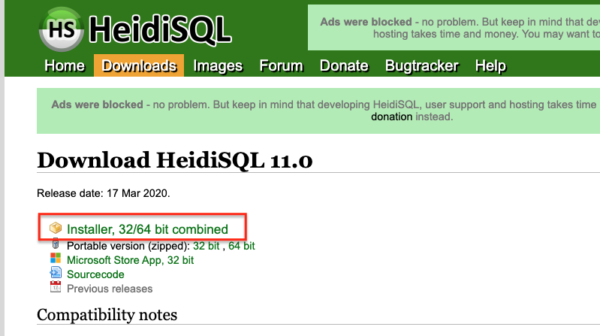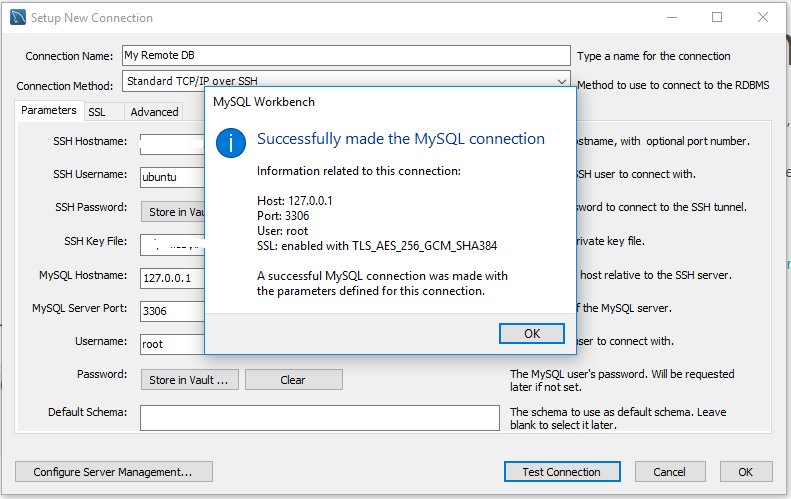
I've looked into having my local docker attempt to use the host IP, expose_hosts for docker-compose, all sorts. MySQL Workbench can access it on 10000 like normal so the tunnel is doing it's job.īasically my objective here is to allow an application on my localhost access the remote database, but not open up remote to effectively bind 0.0.0.0, as that is woefully insecure, and I understand that the best way to access MySQL is via tunnels directly to the box over SSH. After closing the error message, I have no trouble using Workbench. I wasnt able to connect to the MySQL server using the root user, instead I had to create a separate non-root user to use for the login. The SSH server requires the use of a ssh-key. When I launch MySQL Workbench, a popup appears: Error Tunnel Manager Cannot start SSH tunnel manager As far as I know, Im not using such a feature - I only use mysql on localhost. Just had this same issue on Ubuntu machine connecting to a server running MySQL version 5.5.29 and MySQL Workbench 5.2.40. I've got Putty set up to tunnel port 3306 on remote to port 10000 on local. This error message began appearing after I upgraded from Ubuntu 9.10 to Ubuntu 10.04.
#Mysql workbench cannot start ssh tunnel manager install#
For final try I uninstall MySql Workbench and delete setting folder mentioned before and install recently downloaded version of MySql workbench. I remove the folder under the user\application data\roaming\mysql\workbench\ssh\ but still problem remains. I've also tried changing IPTables to ignore all outside communication on port 3306 but for some reason it's still open. I found out some how the problem is caused by caching ssh known host. You may ask "Well why don't you just SSH Tunnel in?" Well that is a solution sure for connecting to the docker instance on the remote directly, however, I'm not able to allow my local docker containers to use that tunneled port, specifically a PHP 7.1 container. However, this only means that it's available to the local host, and it cannot be used by any other interface. I've recently discovered that in the docker-compose.yml file you can specify on the ports section the following: I didn't manage to fix MySQL Workbench itself on my Mac, but if you create an independent SSH tunnel in the terminal like so (replace username, server and maybe the second server and last port as needed): ssh usernameserver -L 3307:localhost:3306 -N Then, you can simply use MySQL Workbench to connect to a local MySQL server at port 3307, with.


What I'm attempting to do is have MySQL discoverable by all docker instances and localhost on a remote server, but block MySQL from outside communication except a specific IP address (my home IP), or via a SSH tunnel.


 0 kommentar(er)
0 kommentar(er)
